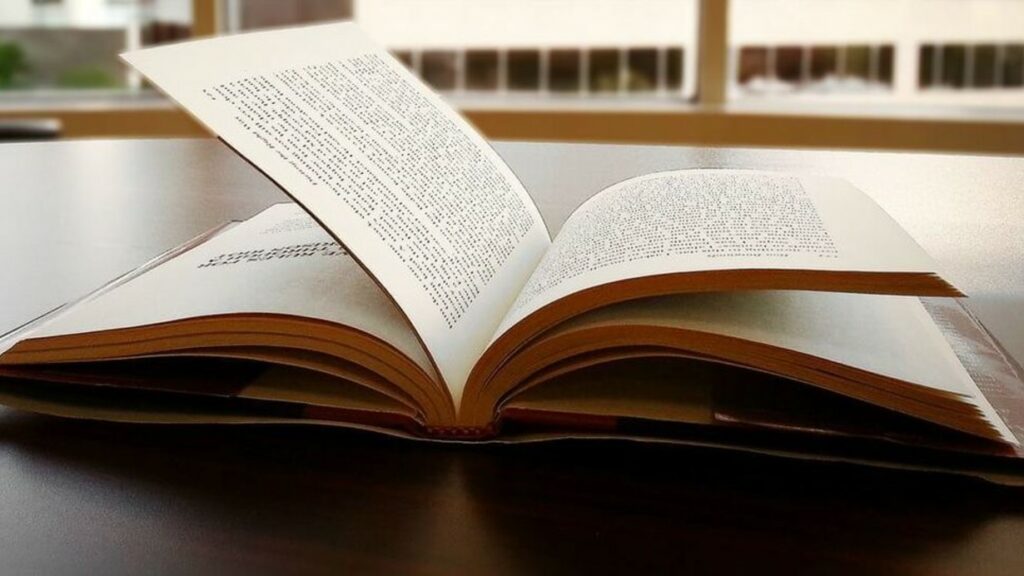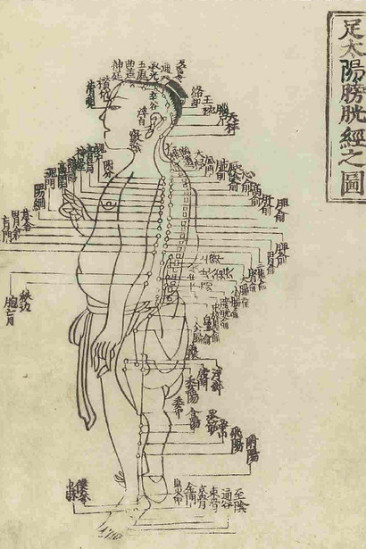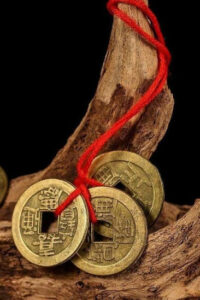Yi Jing – I Ching 易經 — The Book of Changes
ASIA--PACIFIC, REVIEWS, ARTS, ACADEMIA-KNOWLEDGE-SCHOLARSHIP, LITERATURE, INSPIRATIONAL, 28 Oct 2019
Igor Micunovic | Human Wrongs Watch – TRANSCEND Media Service
24 Oct 2019 — Ancient culture of China has made great contributions to world culture. Book of Changes is one of the most precious contributions of Chinese culture, which has exerted a great influence on Chinese philosophy, literature, historical study, as well as natural and social sciences.
The Book of Changes is the very basis of Chinese culture, the principal source of Chinese philosophy. social sciences and natural sciences. It has greatly influenced the history of Chinese civilization.
Its importance lies not only in what is covered in the Book of Changes and Commentaries on the Changes, the two Component parts of the book, but also in some 3000 related works on Yi philosophy (philosophy of Changes).
Many ancient schools of thought that derived from this philosophy, and the comprehensive system of in science it nurtured. All this makes the Book of Changes an inexhaustible well and unlimited treasury of human knowledge.
The Book of Changes is a pivotal link between the past and the future. It has organically combined ancient and modem Chinese civilization, joined the lifelines of Chinese culture and vigorously promoted its development.
The Book of Changes, or its essence, has two major connotations: Yi philosophy and Xiang Shu (Divination). Xiang Shu is the basis of Yi philosophy. It is the charm and attraction of Xiang Shu has made Yi philosophy more popular than any other system of philosophy.
The Book of Changes adopted the essence of the principles of Yin and Yang (negative and positive) and waxing (the five elements: metal, wood, water, fire and earth) of the pre Qin period, and The Emperor’s Canon of Medicine also took them as its basic theories, which shows the particular “kinship” between these two monumental works.
The Book of Changes can be regarded as the source of The Emperor’s Canon of Medicine, for the latter absorbed the essence of the Changes, creatively developed many of its theories and even improved on some of them. This has made the Canon of great medical classic, as brilliant as the Changes.
By fully incorporating the theories of the Changes and creatively integrating them with medical science, the Canon has made TCM a branch of the natural sciences with a very high philosophical value, and has strongly promoted its development.
Thus it is obvious that TCM science and Yi science developed from the same origin, and the basic theories of the former stemmed from those of the latter. As the ancient doctor Sun Simiao once said: “You cannot master medicine until you have studied the Book of Changes. ”
It is hardly exaggerating to say that no doctor in Chinese medical history has ever studied The Emperor’s Canon of Medicine without consulting the Book of Changes. But to make a deeper study of The Emperor’s Canon of Medicine, there is need to have a thorough understanding of the Book of Changes, so that its origin can be traced, its essence inherited and the study of TCM further developed.
A Warning in Medicine concluded: “The guidance to medicine is implied everywhere in Book of Changes“, which reflects the close relationship between medicine and Book of Changes, as well as the great influence of the book on TCM.
Book of Changes is divided into two parts, Yi Jing (The Text) and Yi Zhuan (The Commentaries). The former is the original work that came into being at the end of the Western Zhou Dynasty as a book on natural sciences in ancient times.
It is a summary of research in the fields of natural and social sciences, history, and philosophy and a masterpiece incorporating the natural sciences and philosophy. Since it is concerned with many realms of human knowledge, such as astronomy, geography, music, and the art of war.
Book of Changes is wide ranging in that it was intended as an investigation of the mysteries of the universe by numbers, theories and symbols. Some scholars believe Book of Changes is a joint work of Fu Xi, King Wen, Zhou Gong and Confucius, with Fu Xi drawing the Eight Trigrams, King Wen inventing the judgements to the hexagrams, Zhou Gong writing the text pertaining to individual lines, and Confucius composing The Commentaries (Yi Zhuan).
The three schools of Chinese thought, Confucianism, Taoism and Mohism, as well as other schools, are all based on Book of Changes.
Yi Jing and Yi Zhuan comprise Book of Changes, the theory of which is called the theory of changes. It is, no doubt, a magnificent classic incorporating philosophy, science and culture. What is more valuable is the mass of philosophy related to medicine implied in it. Therefore, medicine is said to have the same origin as Book of Changes.
The basic theories of The Emperor’s Canon of Medicine, such as Yin and Yang (the negative and positive), Zang Xiang (the outside imaging representation of organs) and Qihua (the production, circulation and function of vital energy) were all derived from Book of Changes.
In addition, Book of Changes provides a rich source of medical data, including records of fourteen diseases, eight medical hers, and many terms of physiological dissection, sterility and psychological treatment. Thus, the study of The Emperor’s Canon of Medicine can not be accomplished without tracing it to its original source.
Book of Changes, The Emperor’s Canon of Medicine and Yi Zhuan were written at about the same period, with the latter during the time from the Spring and Autumn Period till the Warring States Period and the former from the Warring States Period to the Han Dynasty.
As a result, The Emperor’s Canon of Medicine strays the great influence of Book of Changes, with much of its philosophy imbed in The Emperor’s Canon of Medicine. Since The Emperor’s Canon of Medicine absorbed the essence of Book of Changes as well as expanded many of the theories of Book of Changes, it has become a masterpiece in medicine, summarizing the results of the medical research before the Han Dynasty.
Many of the theories borrowed by The Emperor’s Canon of Medicine were further improved by it, thus making it not only a medical classic but also a scientific work, anthropology, philosophy and logic, as brilliant as Book of Changes.
In terms of philosophy, Book of Changes is the ancestor of Confucian thought. Confucianism originated from Book of Changes, with the former taking Book of Changes as the standard of morality. Consequently, there have been no Confucian scholars who have not devoted their studies to Book of Changes. The Commentaries is said to have been written by Confucius.
The Classic of Taoism, Laozi finds its source in Book of Changes. Laozi is actually an explanation of Book of Changes. The famous saying in Laozi: “Tao leads to one, one leads to two, two leads to three and three creates everything” was derived from “Birth and birth are called changes”.
All of Laozi was based on Book of Changes. Confucius followed Book of Changes’ doctrine on Being Positive while Taoism followed that of Negative, thus giving rise to the different doctrines of two schools. The views of Mohism were also based on Book of Changes, with the main idea that the changes from rise to decline are the natural law of development.
This is in correspondence with the doctrine of changes taught by Book of Changes. These make it clear that the three schools of thought in Chinese culture all originated from Book of Changes and that Book of Changes has no rival in the range it covers and the influence it has had on Chinese culture.
The Commentaries was compiled between the Spring and Autumn Period (790-476 BC) and the Warring States Period (475-221 BC) while The Emperor’s Canon of Medicine was, written between the Warring States Period and the Han Dynasty.
Since the two books were basically contemporary, The Emperor’s Canon of Medicine fully adopted the essence of Book of Changes (including the theory of Yin and Yang and the Five Elements, which came into being during the Warring States Period) and combined this creatively with medicine, rendering TCM and independent branch of natural science with a high level of theoretical reasoning.
With the great contributions made to the health of the Chinese people, The Emperor’s Canon of Medicine has proved to be a great work of TCM. The Emperor’s Canon of Medicine and Book of Changeshave influenced each other, with the former influenced by the latter as well as spurring further developments in it.
There were said to be three versions of Book of Changes in ancient times. The first was Zhou Yi, the version of Book of Changes still incurrent use. It was invented by Fu Xi. The Text contains sixty-four Hexagrams, with Qian Gua as the first.
The second was Lian Shan Yi. It was compiled by Shen Nong. That version was adopted by the Xia Dynasty. It is no longer extant. The third was Gui Zang Yi. It was the version by Huang Di, the first trigram of which was Kun Gua. The political system of the Shang Dynasty was based on it. It is no longer extant.
In short, the nature of Book of Changes should be viewed in this way: in form, it is a book on divination, in content, it is a record of the social and productive activities, as well as of the scientific research, in the Shang and Zhou dynasties, with the kernal of early: Chinese culture within it. Therefore, it is the ancestor of early Chinese scientific thoughts, philosophical views and culture.
______________________________________________
 Dr. Igor Micunovic, Ph.D. is President of the Association of Acupuncturists of Montenegro; the World Society of Traditional Chinese Medicine Societies director and board member; and an Integrative medicine and personal transformation specialist.
Dr. Igor Micunovic, Ph.D. is President of the Association of Acupuncturists of Montenegro; the World Society of Traditional Chinese Medicine Societies director and board member; and an Integrative medicine and personal transformation specialist.
Go to Original – human-wrongs-watch.net
Tags: China, Confucianism, I Ching, Literature, Metaphysics, Philosophy, Tao Te Ching, Taoism, Yi Jing, Yin Yang
DISCLAIMER: The statements, views and opinions expressed in pieces republished here are solely those of the authors and do not necessarily represent those of TMS. In accordance with title 17 U.S.C. section 107, this material is distributed without profit to those who have expressed a prior interest in receiving the included information for research and educational purposes. TMS has no affiliation whatsoever with the originator of this article nor is TMS endorsed or sponsored by the originator. “GO TO ORIGINAL” links are provided as a convenience to our readers and allow for verification of authenticity. However, as originating pages are often updated by their originating host sites, the versions posted may not match the versions our readers view when clicking the “GO TO ORIGINAL” links. This site contains copyrighted material the use of which has not always been specifically authorized by the copyright owner. We are making such material available in our efforts to advance understanding of environmental, political, human rights, economic, democracy, scientific, and social justice issues, etc. We believe this constitutes a ‘fair use’ of any such copyrighted material as provided for in section 107 of the US Copyright Law. In accordance with Title 17 U.S.C. Section 107, the material on this site is distributed without profit to those who have expressed a prior interest in receiving the included information for research and educational purposes. For more information go to: http://www.law.cornell.edu/uscode/17/107.shtml. If you wish to use copyrighted material from this site for purposes of your own that go beyond ‘fair use’, you must obtain permission from the copyright owner.
Read more
Click here to go to the current weekly digest or pick another article:
ASIA--PACIFIC:
- The Hawaiians Who Want Their Nation Back
- The Hidden Meaning of the Martial Law in South Korea
- The Machu Picchu Declaration of the Asia-Pacific Economic Cooperation-APEC 2024
REVIEWS:
- MIT Science for Genocide
- We the People: Whistleblowers, Whistleblowing & Retaliation in the United Nations
- It’s Not You, It’s CAPITALISM
ARTS:
- ‘Film Was the Best Way to Convey Our Art Amid the Suffering in Gaza’
- The Power of Arts in Encountering Individual Unspoken Values within Peacebuilding
- What’s the Use of William Blake?
ACADEMIA-KNOWLEDGE-SCHOLARSHIP:
- The Futility of Genocide Studies after Gaza
- Are We as Area Studies Scholars Guilty of Negligence in Allowing Genocides to Happen in the Regions We Study?
- Nepal: Inaugural Issue of “Social Inquiry” Published
LITERATURE:
- Naomi Klein and VV Ganeshananthan Win Women’s Prize Literary Awards
- The Dalit and the Brahmin
- Gandhi: The Soul Force Warrior
INSPIRATIONAL:



